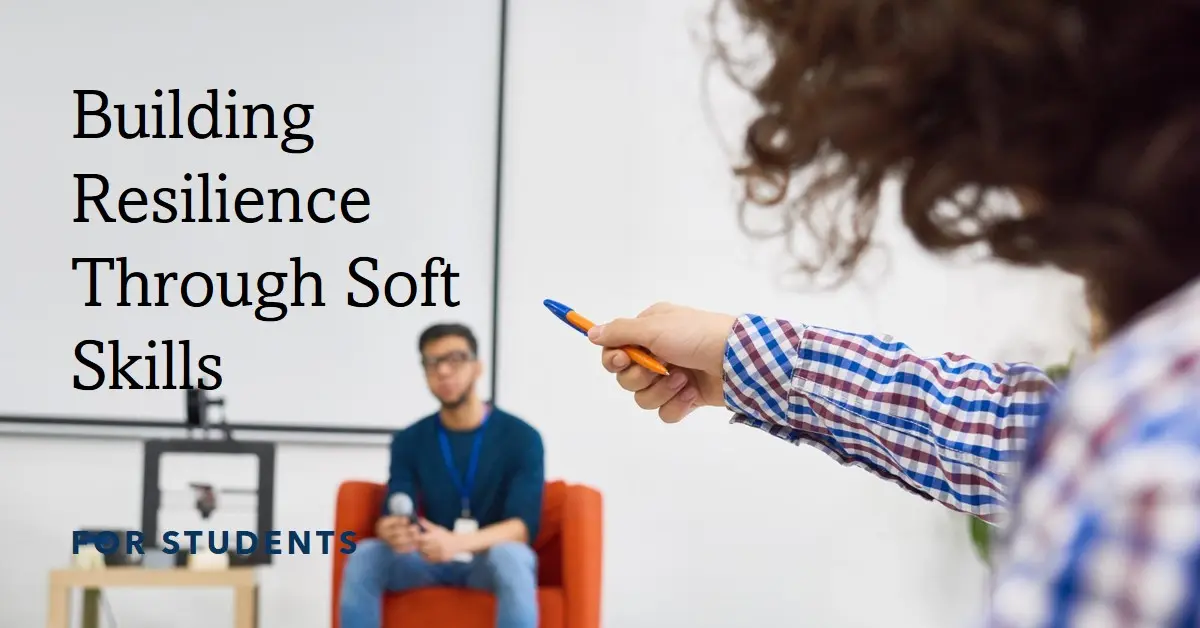In an ever-changing world, the well-being of students has become a topic of increasing concern. The pressures of academia and the challenges of personal and social life can take a toll on a student’s mental and emotional health. However, industry experts in the education sector recognize soft skills’ role in enhancing student well-being and building resilience. At the Education 2.0 Conference and such gatherings, these professionals share their ideas and strategies to equip students with essential soft skills to help them build resilience. This blog highlights the importance of developing key soft skills that are vital to student well-being and future achievement.
What Are Soft Skills?
Soft skills, often called interpersonal or non-cognitive skills, encompass many abilities beyond traditional academic knowledge. Experts at recent education events in Vegas illustrated that those with better soft skills experience improved relationships, academic performance, workplace productivity, and mental health. While hard skills are undoubtedly crucial for academic success, soft skills enable students to navigate the complexities of life in the face of adversity.
The Importance Of Resilience
Before delving into the role of soft skills, it’s crucial to understand why resilience is essential for student well-being. Resilience can help them recover from setbacks, adjust to shifts, and endure life’s difficulties. In the context of students, resilience enables them to cope with stress and future uncertainties. It acts as a protective shield against anxiety, depression, and burnout.
Resilient students are more likely to persevere through difficult times, maintain a positive attitude, and seek help when needed. Moreover, resilience promotes a growth mindset, where students view challenges as opportunities for learning and development rather than insurmountable obstacles. At upcoming 2024 education conferences, experts will cover the various needs of students when it comes to developing resilience. They will share strategies, best practices, and the latest research to help educators and institutions support students in building this critical skill.
The Role Of Soft Skills In Building Resilience
Building resilience in students involves developing soft skills essential to their emotional and social well-being. Here are key soft skills that contribute to resilience:
Emotional Intelligence: Emotional intelligence entails the skill to identify, comprehend, and regulate one’s own emotions, all while being sensitive to the emotions of others. Students with high EQ are better equipped to regulate stress, form positive relationships, and handle conflicts constructively. This skill is particularly vital in the face of the emotional rollercoaster that is often part of the student experience.
Communication Skills: Efficient communication is crucial in establishing and sustaining robust connections. Those who can articulate their thoughts effectively and demonstrate empathetic listening are more inclined to seek assistance when required. They are better equipped to collaborate with peers, resolve conflicts, and navigate the complexities of social interactions.
Adaptability: According to speakers at educational events in Las Vegas, resilience’s capacity to adjust to novel circumstances and confront challenges is a defining characteristic. Soft skills like adaptability enable students to embrace change, learn from failures, and remain open to new opportunities. In an era of technological advancements and societal shifts, adaptability is a skill that can significantly enhance a student’s well-being.
Problem-Solving Skills: Resilient students excel in problem-solving. They approach obstacles with a solution-oriented mindset, breaking down complex issues into manageable steps. These problem-solving skills not only help students academically but also empower them to tackle real-life challenges with confidence.
Self-Regulation: Self-regulation involves managing one’s emotions, impulses, and behavior. Students who can self-regulate are less likely to succumb to stress, anxiety, or destructive habits. This skill lets them stay focused, set goals, and maintain a healthy work-life balance.
Empathy: Speaking at the Education 2.0 Conference, professionals point out that empathy is the ability to understand and share the feelings of others. It promotes strong interpersonal relationships and encourages support-seeking behavior. Empathetic students are more likely to offer help to their peers and, in turn, receive support when they need it most.
Time Management: Practicable time management is a soft skill that can prevent students from feeling overwhelmed. It enables them to prioritize tasks, set realistic goals, and allocate time for relaxation and self-care. Proper time management reduces stress and contributes to a healthier, more balanced life.
The Long-Term Impact
Building resilience through the cultivation of soft skills is beneficial during a student’s academic journey and has lasting effects throughout their life. Students who possess strong soft skills are better prepared for the demands of the workplace, where effective communication, adaptability, and problem-solving are highly valued. These skills also contribute to a higher quality of life, healthier relationships, and greater well-being. In this regard, upcoming 2024 education conferences open doors for collaboration and knowledge exchange, ensuring educators are well-equipped to nurture resilience in their students.
Conclusion
Many educational institutions conduct programs that focus on developing these critical soft skills. Speakers at the education events in Vegas noted that such a practice can significantly enhance students’ ability to thrive in academic settings. By investing in developing soft skills, educational institutions and educators can contribute to a brighter, more resilient future for students and society.



